
How to Play the Card Game Basra |
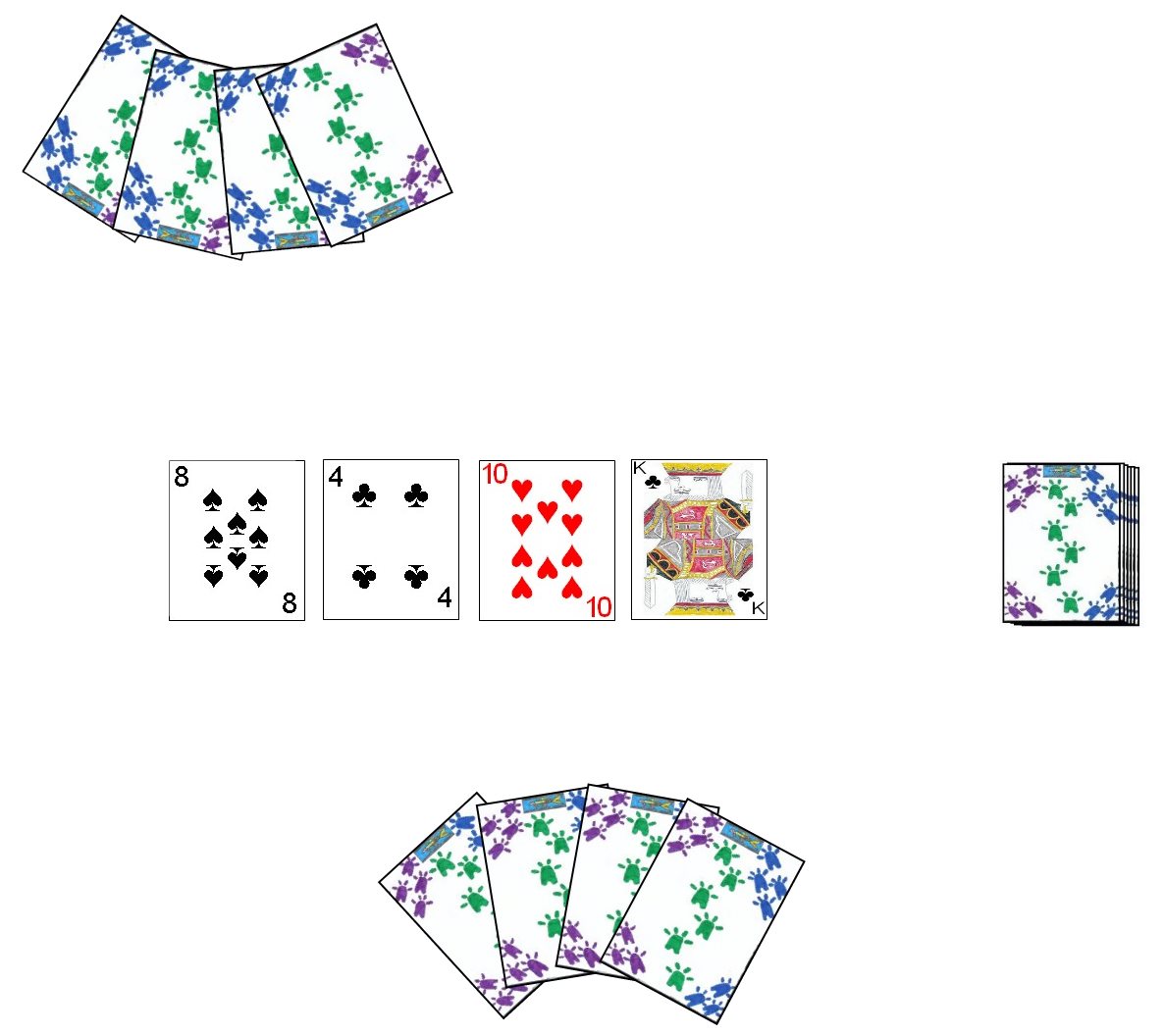 Determination of seating positions and the first dealer can be done using any method, with drawing for high card common. To do this, each player should draw a card from the face-down shuffled deck. The players would then select seats at the table in order of the rank of cards drawn, from highest to lowest. If two or more players draw cards of the same denomination, those players should each draw a second card to determine the ordering amongst the players who drew these tied cards. The player drawing the highest card of all also becomes the first dealer. After each hand, the deal rotates around the table in a clockwise direction.
Determination of seating positions and the first dealer can be done using any method, with drawing for high card common. To do this, each player should draw a card from the face-down shuffled deck. The players would then select seats at the table in order of the rank of cards drawn, from highest to lowest. If two or more players draw cards of the same denomination, those players should each draw a second card to determine the ordering amongst the players who drew these tied cards. The player drawing the highest card of all also becomes the first dealer. After each hand, the deal rotates around the table in a clockwise direction.
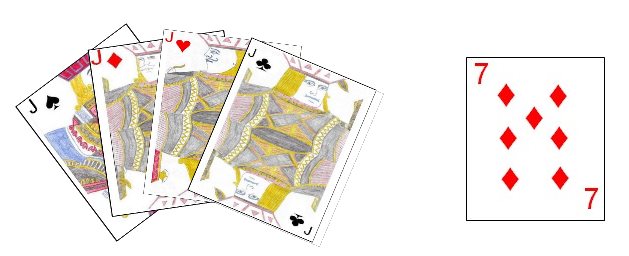 If a player, through one of these plays manages to capture every card currently on the board, he is entitled to 10 bonus points (called a Basra). He usually indicates this in his capture pile by placing the card used to make the capture face up in the pile, to assist with scorekeeping at the end of the hand. In addition, the seven of Diamonds and the four Jacks have special capabilities. If a Jack is played and there is at least one other card on the table, the player captures his Jack and all cards on the board. However, he does not score a Basra when clearing the board in this way. If there are no other cards in the center layout, the Jack is simply left in the center of the table, usually to later be captured by another Jack or the seven of Diamonds. Similarly, when the seven of Diamonds is played, if there is at least one other card on the board, the player of that card captures his seven of Diamonds and any other cards on the table. If the total sum of all cards captured by the seven of Diamonds (not counting the seven of Diamonds itself) is 10 or less, and no face cards are currently on the floor, the player also scores 10 points for a Basra. If there are no other cards on the floor when the seven of Diamonds is played, the card is simply played to the center and may then be captured as any other card.
If a player, through one of these plays manages to capture every card currently on the board, he is entitled to 10 bonus points (called a Basra). He usually indicates this in his capture pile by placing the card used to make the capture face up in the pile, to assist with scorekeeping at the end of the hand. In addition, the seven of Diamonds and the four Jacks have special capabilities. If a Jack is played and there is at least one other card on the table, the player captures his Jack and all cards on the board. However, he does not score a Basra when clearing the board in this way. If there are no other cards in the center layout, the Jack is simply left in the center of the table, usually to later be captured by another Jack or the seven of Diamonds. Similarly, when the seven of Diamonds is played, if there is at least one other card on the board, the player of that card captures his seven of Diamonds and any other cards on the table. If the total sum of all cards captured by the seven of Diamonds (not counting the seven of Diamonds itself) is 10 or less, and no face cards are currently on the floor, the player also scores 10 points for a Basra. If there are no other cards on the floor when the seven of Diamonds is played, the card is simply played to the center and may then be captured as any other card.
| Scoring Opportunity | Description and Scoring Value |
|---|---|
| Most Cards | The player who captures the most cards scores 30 points for the hand. If two or more players tie for the most cards on the hand, no one scores for cards on this hand, and the score for this category on the next hand is doubled. |
| Jacks | Each Jack captured during the hand scores the capturer 1 point. |
| Ace | Each Ace captured during the hand scores 1 point for the capturer. |
| Two of Clubs | Capturing the two of Clubs earns the capturer 2 points. |
| Ten of Diamonds | Capturing the 10 of Diamonds scores the capturing player 3 points. |
| Basra | As mentioned above, each Basra a player manages to perform during the hand scores 10 points for the player. |

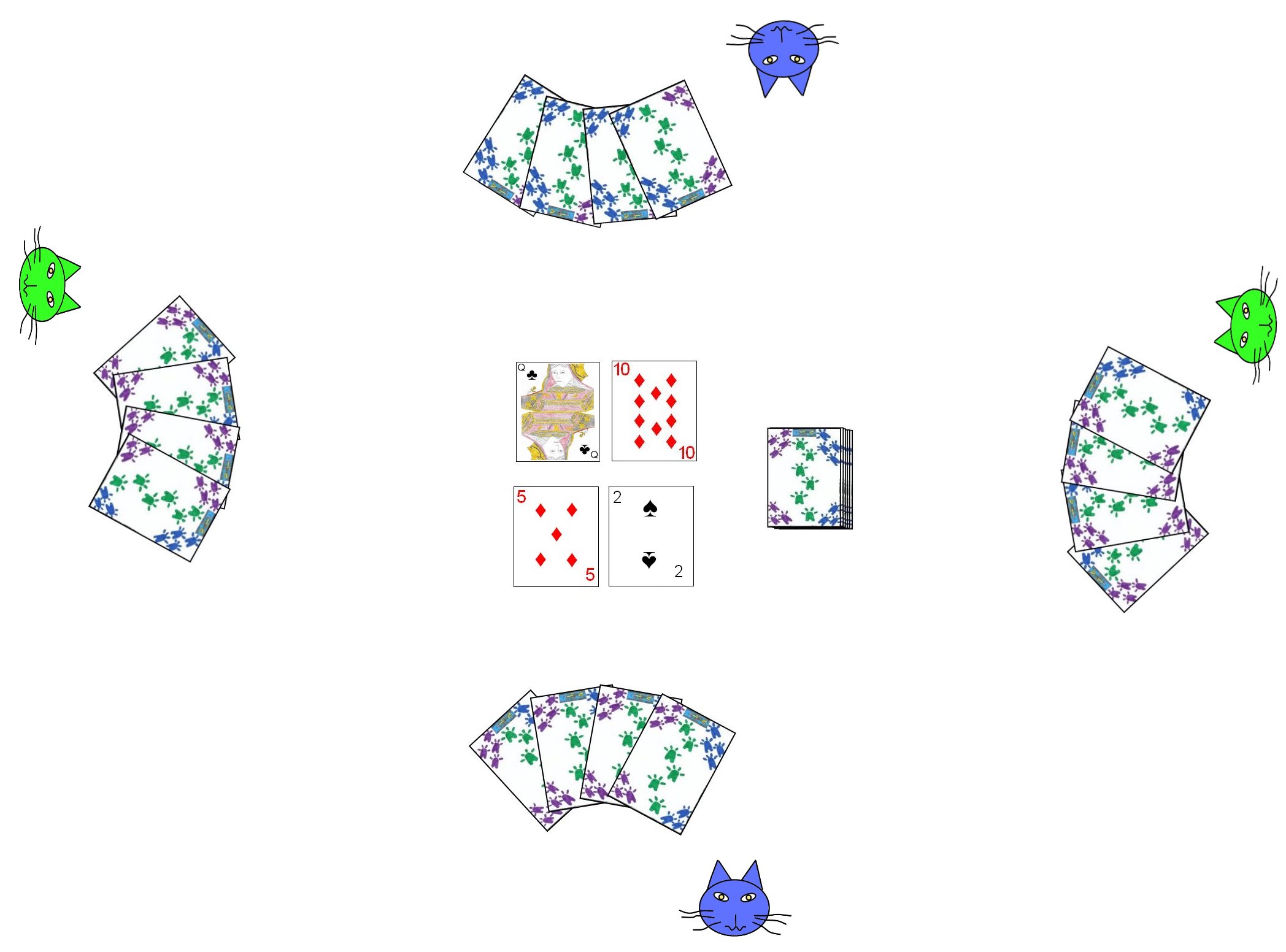 Partnership Basra: In addition to the standard four player variant as described above, four players may also opt to play Partnership Basra. The game is played similar to the standard game with the following differences:
Partnership Basra: In addition to the standard four player variant as described above, four players may also opt to play Partnership Basra. The game is played similar to the standard game with the following differences:
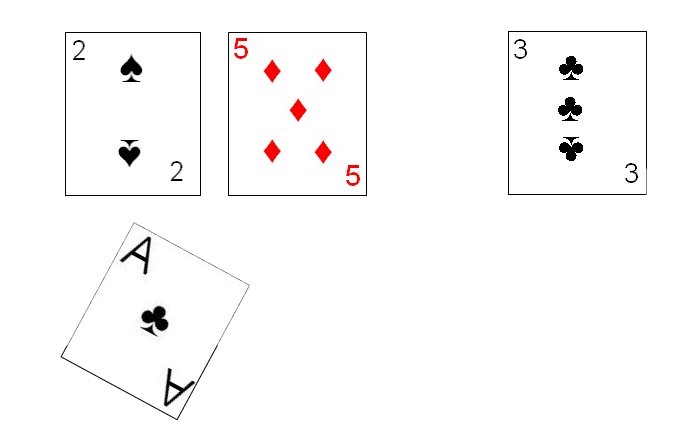
|
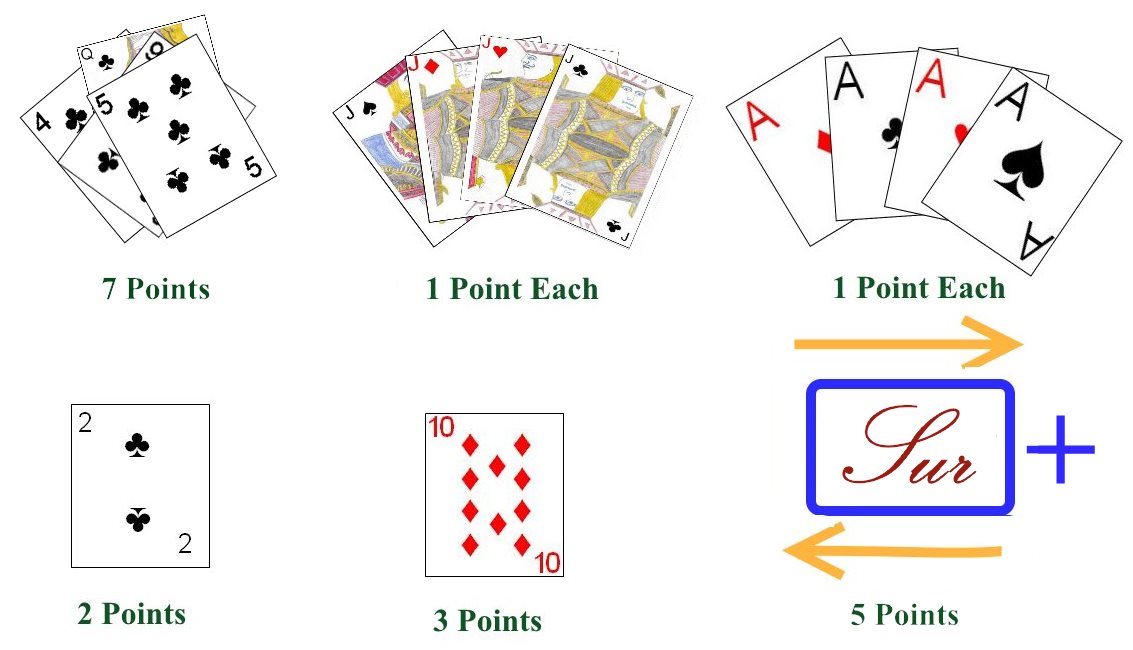 |